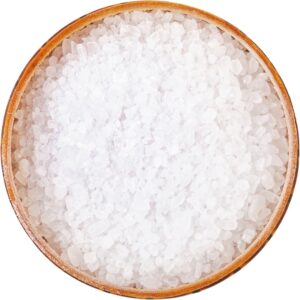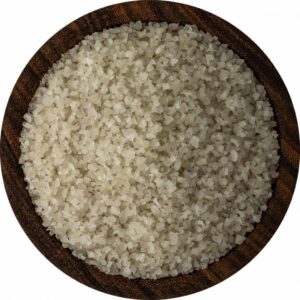Description
What makes a salt organic?
Organic Farming Practices: Organic salt is sourced from salt flats or sea salt ponds where the saltwater is naturally evaporated by the sun and wind. The farming practices used in the production of organic salt must adhere to organic standards, which typically include restrictions on the use of synthetic chemicals, pesticides, and genetically modified organisms (GMOs).
Minimal Processing: Organic salt is processed with minimal intervention. It is typically unrefined, meaning it retains its natural minerals and trace elements. This minimal processing helps maintain the salt’s purity and flavor.
Certification: To be labeled as organic salt, the product must be certified by a recognized organic certification body. This certification ensures that the salt has been produced in accordance with organic farming and processing standards.
Environmental Responsibility: Organic salt production often places an emphasis on sustainable and environmentally responsible practices. This includes efforts to minimize the impact on local ecosystems and promote the conservation of natural resources.
Health Considerations: Organic salt is sometimes chosen by individuals who are health-conscious and seek products with fewer synthetic additives. While it is still primarily sodium chloride (like conventional salt), organic salt may be perceived as a purer and more natural option.
In summary, organic salt is salt that is produced using organic farming practices, adheres to specific organic certification standards, and is processed with minimal intervention. It is valued for its potential environmental sustainability and perceived purity. However, it’s important to note that from a chemical composition standpoint, organic salt is similar to conventional salt, primarily consisting of sodium chloride.





Reviews
There are no reviews yet.